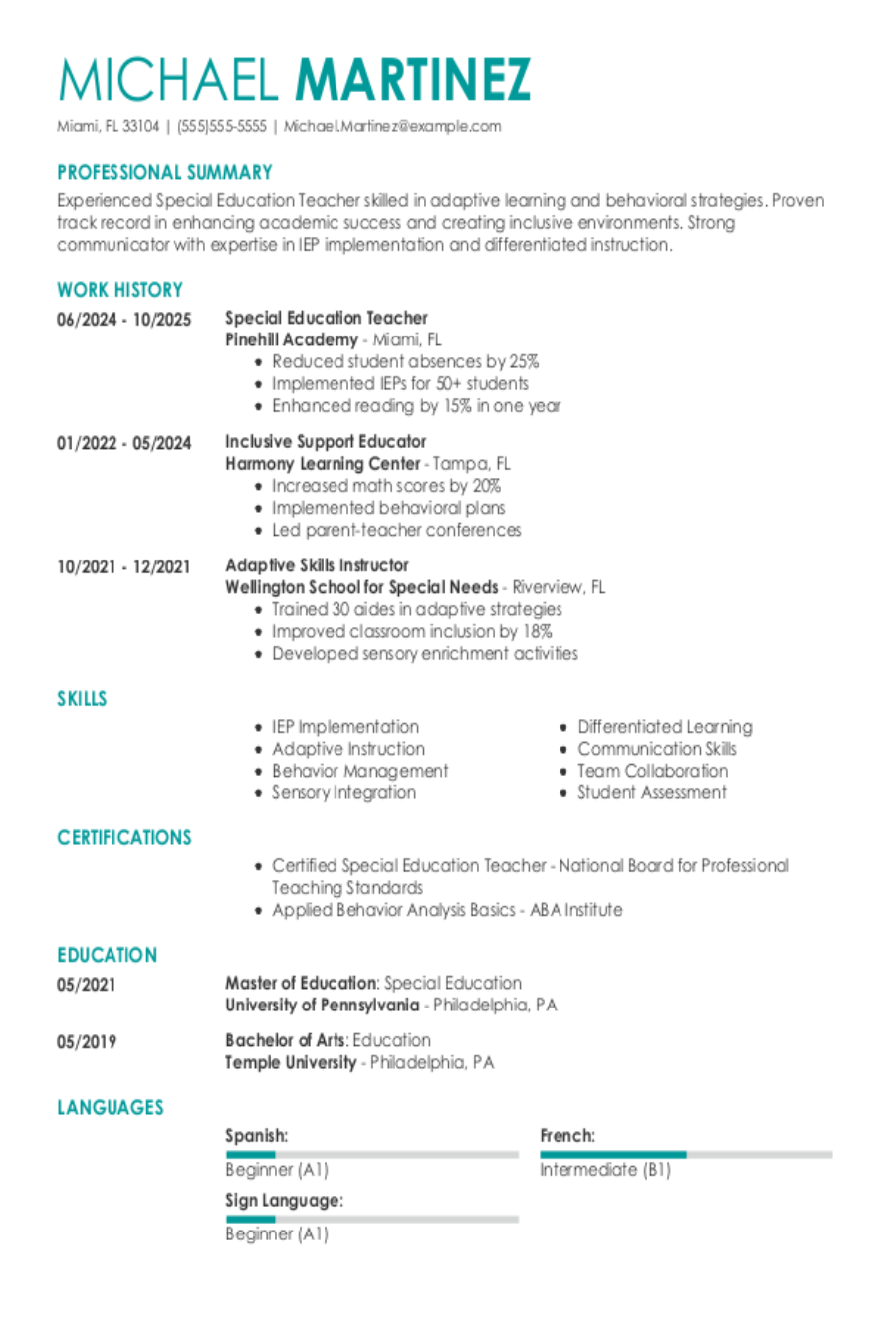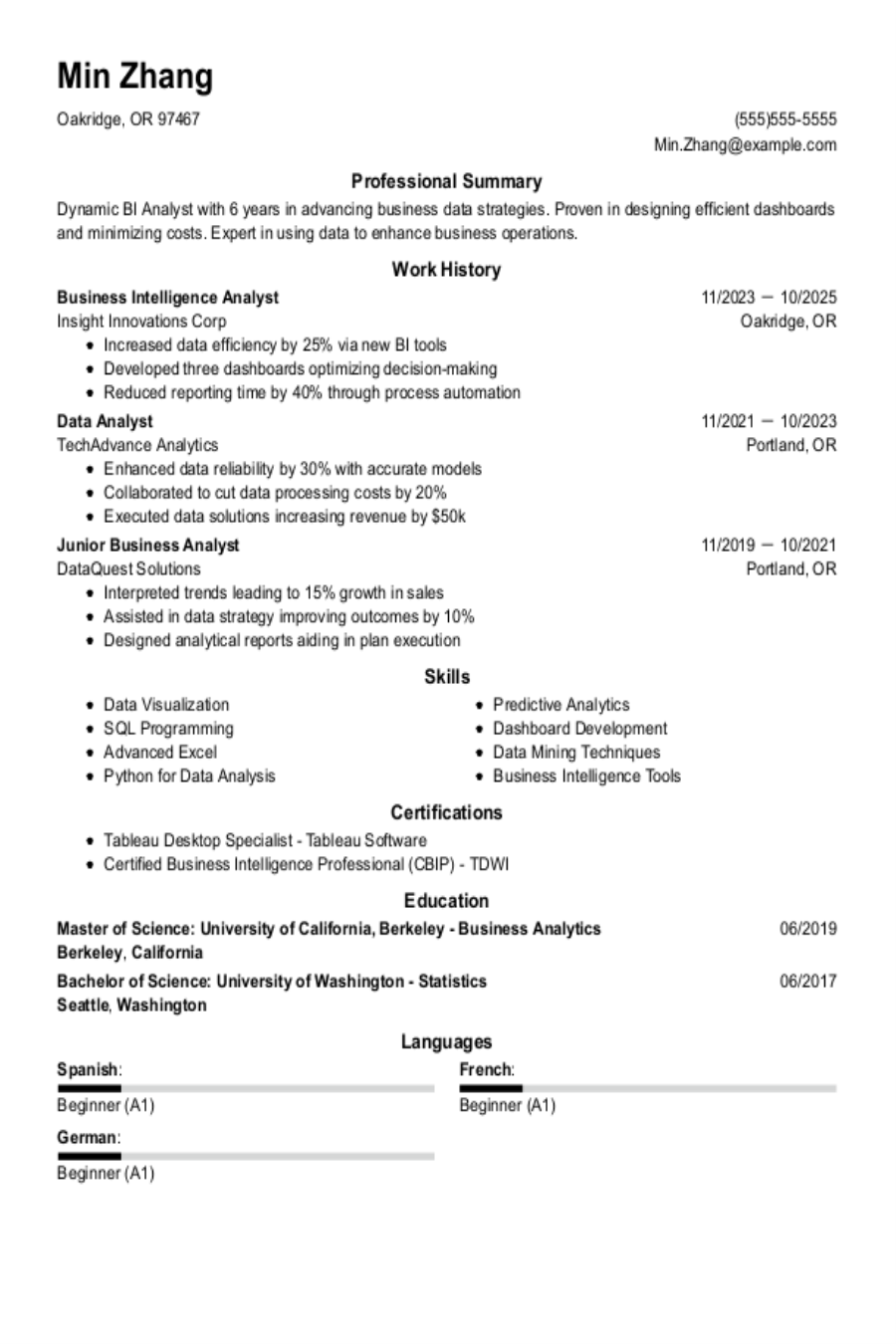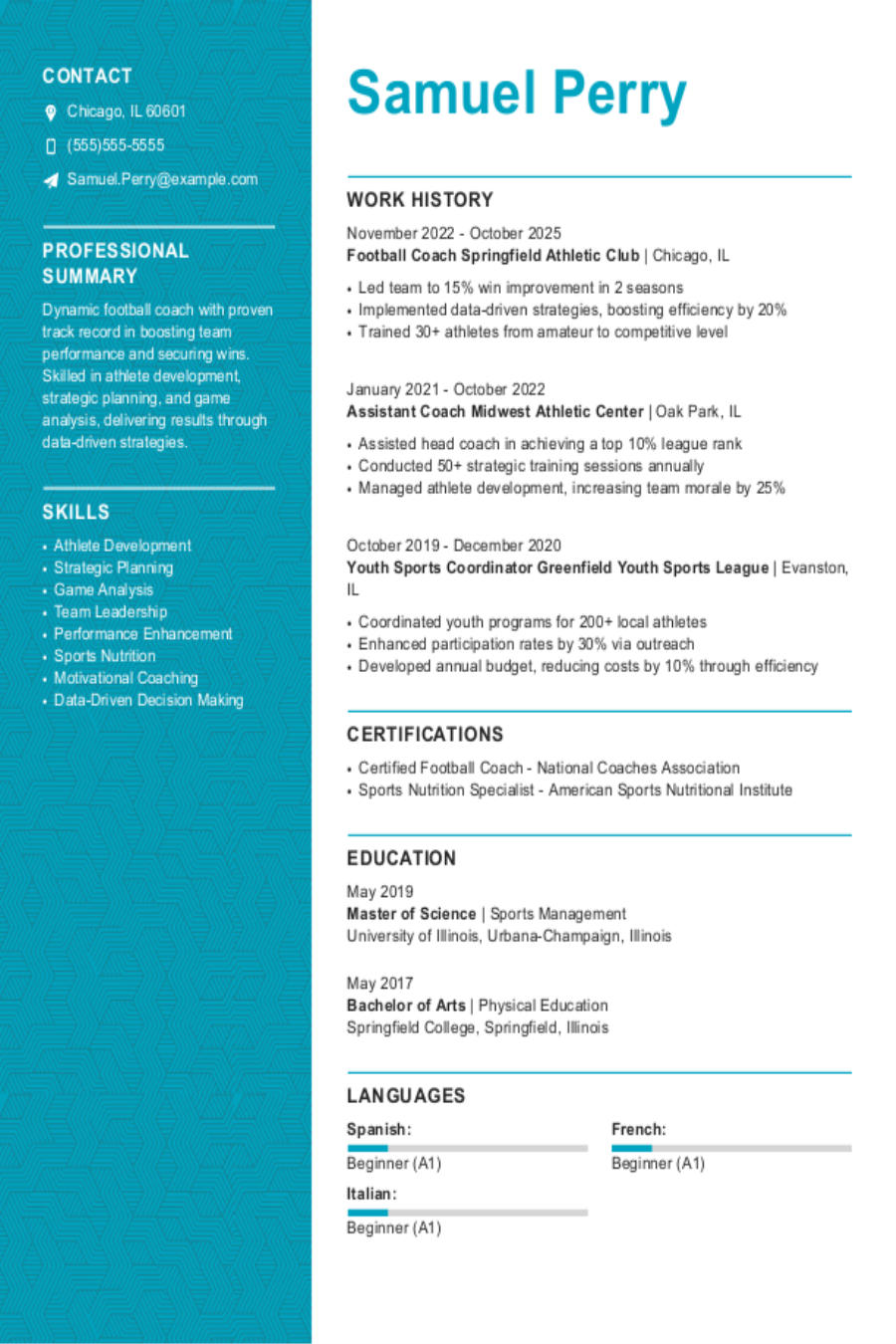Table of contents
Why are cover letters important?
A cover letter is more than a formality, it’s your chance to make a memorable first impression. Unlike a resume, which lists your qualifications, a cover letter allows you to speak directly to the hiring manager, showing who you are as a professional and why you’re excited about the position.
Regardless of where you are in your career, understanding the purpose of a cover letter is key to crafting a compelling one.
In this guide, you’ll see how a cover letter:
- Allows you to connect on a deeper level with hiring managers.
- Gives you the chance to make yourself unique.
- Highlights important qualifications.
- Helps you get past applicant tracking systems (ATS).
Want to make your cover letter the best it can be? Try our AI Cover Letter Generator and let us write you a cover letter in just a few minutes. Simply answer a few questions about your career, pick a template and you’re ready to go!

What Is the Purpose of a Cover Letter?
A cover letter serves several critical purposes that go beyond your resume. You’ll write a cover letter to:
- Introduce yourself professionally: Your cover letter is often the first thing a hiring manager reads, making it an essential part of your first impression. This introduction sets a professional tone and allows you to convey enthusiasm right from the start while making a human connection with the reader.
- Highlight relevant skills and achievements: Unlike a resume, where details are brief, a cover letter lets you expand on your skills and experiences. It’s a place to connect your most relevant qualifications to the job requirements, showing employers why you’re a strong match.
- Tell a story about your value: Your cover letter does more than just restate your resume. It provides the chance for you to expand upon key qualifications by providing details about responsibilities and achievements that underscore your value as an employee.
- Express genuine interest in the role and company: Cover letters give you a chance to speak directly to the company’s mission, values or specific initiatives that resonate with you. Expressing this interest not only demonstrates that you’ve researched the organization but also that you’re enthusiastic about contributing to its goals.
Each of these elements works together to position you as a well-rounded, motivated candidate, giving hiring managers insight beyond what they can see on a resume alone. This gives you the chance to introduce yourself more personally, showcase your top qualifications and express why you’re drawn to the role and the company.
Check out our cover letter examples to see this successfully put into action. You can even use them to get started writing!
Why Is a Cover Letter Important?
A cover letter is a valuable addition to your application. Not only does it enhance your chances of landing an interview, but it:
- Adds depth to your resume: While a resume outlines your work history and skills, a cover letter allows you to add context to those experiences. It explains how your achievements align with the job and lets you emphasize your most relevant strengths.
- Stands out on an ATS: Many employers use automated applicant tracking systems (ATS) to filter for the best candidates. A well-written cover letter that includes relevant qualifications and keywords from the job ad can give the ATS more reason to pass you on to the hiring manager.
- Shows your enthusiasm and fit: Employers are looking for someone who is genuinely excited about the role and aligns with the company culture. A cover letter allows you to express this enthusiasm, helping hiring managers see you as a good match.
- Provides insight into your communication skills: Your cover letter reflects your writing abilities and attention to detail, two qualities valued in nearly every industry. It demonstrates your ability to communicate clearly and professionally, which can be an advantage in the selection process.
With these factors in mind, it’s clear that a cover letter can be the deciding factor in whether you move forward in the hiring process. The purpose of a cover letter goes beyond a brief introduction to you and your qualifications — it’s your first real chance to make a case for why you are the best candidate for the position.
How a Cover Letter Differentiates You From Other Candidates
One of the best things a cover letter can do is to give you a unique advantage by allowing you to showcase qualities that separate you from other applicants, including:
- Showcasing your unique fit: A cover letter can emphasize how your specific skills and experiences align directly with the company’s needs. By tailoring your message, you demonstrate that you understand the role and are ready to contribute meaningfully.
- Highlighting soft skills and personality: Resumes generally focus on hard skills and job history, but a cover letter lets you bring forward traits like adaptability, teamwork and problem-solving. These soft skills are highly valued and help hiring managers envision how you’ll fit within their team.
- Providing unique context: When discussing your job history, your cover letter can provide specific examples of your abilities in action. Done right, especially if you add quantifiable information, you paint a vivid picture of what makes you worth further consideration.
- Addressing career changes or gaps: If you’re changing careers or have gaps in employment, a cover letter is the perfect place to address these aspects positively. Explaining your career journey can clarify your motivations and showcase your drive to succeed in a new environment.
By using your cover letter to share what makes you a well-rounded and motivated candidate, you can set yourself apart from others, giving hiring managers a more complete view of who you are.
Tips for Writing a Purpose-driven Cover Letter
By understanding the purpose of a cover letter, you can focus on what makes you an ideal candidate for the role and company. Here are some tips to help you write a cover letter that serves its purpose effectively:
- Tailor it to the job description: Each job is unique — so should your cover letter. Study the job description closely and tailor your cover letter to highlight the skills and experiences that match the specific requirements of the role.
- Use keywords from the job posting: Many companies use applicant tracking systems (ATS) to screen applications. Including relevant keywords from the job posting increases your chances of passing ATS filters and demonstrates that you’re well-suited for the position.
- Open with a strong introduction: Start your cover letter with a compelling opening that introduces who you are and why you’re interested in the role. This will grab the hiring manager’s attention and set the tone for the rest of your letter.
- Focus on relevant achievements: Highlight two to three accomplishments that directly relate to the job. Use specific examples to demonstrate your impact in past roles, quantifying results where possible to show tangible value.
- Keep it concise and professional: Aim to keep your cover letter to one page, focusing on the most important information. Avoid overly complex language and ensure your tone remains professional yet personable.
By following these tips, you can create a cover letter that resonates with hiring managers and clearly conveys why you’re the right fit for the role. For further help, check out our guide on how to write a cover letter so you can see what else you can do.
Use a Cover Letter Template
Now that you understand the purpose of a cover letter, you are ready to write your own. To save yourself some time, consider using our expertly made cover letter templates that help bring your words to life.
FAQ
Not every job requires a cover letter, but including one can help your application by showing extra effort and giving hiring managers insight into your personality and motivation. Additionally, a cover letter can make you stand out from other candidates by providing unique context to your qualifications and interest in the position.
Aim to keep your cover letter to one page — around 250-400 words. This length allows you to highlight key points without overwhelming the reader. Most hiring managers won’t have time to read anything more, so make sure your cover letter is formatted to be easy to read.
If you’re new to the workforce or changing careers, focus on your transferable skills, relevant coursework, volunteer experience and enthusiasm for the role.
It’s best to customize each cover letter to the specific job. Tailoring it to the job description and company shows genuine interest and improves your chances of making a strong impression.
Begin with a brief introduction that states who you are, what role you’re applying for, and why you’re excited about the opportunity. A personalized opening gets the reader’s attention and sets a positive tone for the rest of your letter.
Was this information about What Is The Purpose Of A Cover Letter And Why Is It Important? helpful? Let us know!
Conor is a Certified Professional Resume Writer (CPRW) and member of the Professional Association of Resume Writers & Career Coaches dedicated to helping job seekers excel in their careers.
More resources

What Is a CV? Curriculum Vitae Definition & Who Should Have One
Do you need to know what a CV stands for? We share the definit...

Hard Skills: 70+ Examples to Put on Your Resume
Hard skills are more important than ever in competitive indust...

AI Trends Heading Into 2026: Resume Now’s Year in Review
Across 2025 Resume Now surveyed thousands of workers and empl...

Teacher Resume: Examples, Templates & Tips
Need a teacher resume to help land you a role in the right cla...

Business Intelligence Analyst Resume: Examples, Templates and Tips
Our business intelligence analyst resume guide will help you j...

Football Coach Resume: Examples, Templates and Tips
Our football coach resume examples will help you create a resu...
